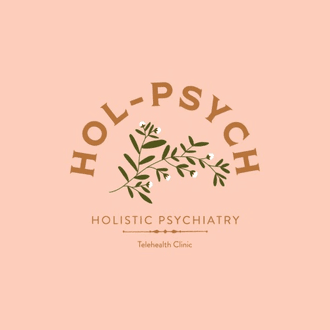
Group DBT Therapy, short for Dialectical Behaviour Therapy, is a skills-based treatment approach that empowers individuals to manage their emotions, develop interpersonal skills, and build a more balanced life. Originally designed for people with borderline personality disorder, Group DBT Therapy has proven effective for those facing a range of emotional and behavioural challenges, including anxiety, depression, and emotional dysregulation. This article explores the core skills and techniques you’ll learn in group DBT, highlighting how they can help you manage life’s stresses more effectively.
What is Group DBT Therapy?
Group DBT Therapy is a structured, skills-based form of psychotherapy that incorporates both cognitive-behavioural techniques and mindfulness practices. In a supportive group setting, participants work through four core modules: mindfulness, distress tolerance, emotion regulation, and interpersonal effectiveness. These modules provide practical skills that can be applied to real-life situations, helping individuals cultivate resilience and emotional stability.
In Group DBT Therapy, sessions are typically facilitated by trained therapists who guide participants through each skill. The group environment offers a unique space to practise these techniques, receive feedback, and learn from others’ experiences.
The Core Skills Taught in Group DBT Therapy
1. Mindfulness Skills
Mindfulness is foundational in Group DBT Therapy, serving as the basis for other skills. Mindfulness techniques help individuals focus on the present moment, enhancing self-awareness and reducing impulsive reactions. In a DBT group setting, mindfulness is practised regularly, enabling participants to observe their thoughts and emotions without judgement.
Mindfulness skills in Group DBT Therapy include:
- Observing: Paying attention to experiences in the present moment.
- Describing: Articulating experiences without emotional attachment.
- Participating: Engaging fully in each moment.
Mindfulness helps individuals gain control over their attention, allowing them to respond to situations with intention rather than reacting impulsively.
2. Distress Tolerance Skills
Distress tolerance skills equip individuals to handle challenging emotions and situations without making them worse. In Group DBT Therapy, these techniques are invaluable for coping with crises, especially when immediate change is not possible. Distress tolerance focuses on acceptance rather than problem-solving, teaching individuals to withstand difficult emotions in healthy ways.
Key distress tolerance techniques taught in Group DBT Therapy include:
- Self-Soothing: Using the five senses to calm oneself during moments of distress.
- Distraction: Shifting focus to alternative activities to alleviate intense emotions.
- Improving the Moment: Using imagery or relaxation techniques to make challenging moments more bearable.
- Pros and Cons: Evaluating the benefits and consequences of actions before making decisions.
Learning distress tolerance helps individuals approach crises with resilience and composure, reducing the urge to engage in harmful behaviours.
3. Emotion Regulation Skills
Emotion regulation skills are central to managing emotional intensity and volatility. In Group DBT Therapy, participants learn to identify and label their emotions accurately, reduce vulnerability to negative emotions, and develop strategies to manage strong emotional responses effectively.
Core techniques for emotion regulation in Group DBT Therapy include:
- Identifying Emotions: Recognising and naming emotions to gain control over them.
- Changing Emotions: Using specific strategies to shift negative emotions to more manageable states.
- Building Positive Experiences: Actively creating situations that foster positive emotions.
- Taking Care of Physical Health: Maintaining physical well-being to reduce emotional vulnerability.
These skills provide participants with the tools to stabilise their emotions, promoting a more balanced and grounded approach to life’s challenges.
4. Interpersonal Effectiveness Skills
In i, interpersonal effectiveness skills focus on building and maintaining healthy relationships, asserting personal needs, and setting boundaries. These techniques are essential for individuals who struggle with conflict or have difficulty expressing themselves effectively.
Group DBT Therapy teaches several key interpersonal skills, including:
- DEAR MAN: A structured approach for making requests and asserting oneself while respecting others.
- Describe: Clearly describe the situation.
- Express: Share your feelings about the situation.
- Assert: Clearly state what you want or need.
- Reinforce: Explain why your request will benefit the other person.
- Mindful: Stay focused on your goal.
- Appear Confident: Present yourself with confidence.
- Negotiate: Be willing to give and take.
- GIVE: Techniques to maintain relationships and ensure respectful communication.
- FAST: Skills to maintain self-respect in difficult interactions.
Interpersonal effectiveness skills empower individuals to communicate assertively and manage relationships in a balanced way, helping them set healthy boundaries and build supportive connections.
Benefits of Group DBT Therapy
1. A Supportive Community
One of the unique benefits of Group DBT Therapy is the sense of community it fosters. Participants learn that they are not alone in their struggles, which reduces feelings of isolation. Sharing experiences with others who face similar challenges can be both validating and empowering.
2. Real-Time Feedback and Practice
Group settings allow for real-time practice of skills, such as interpersonal effectiveness, with immediate feedback. This hands-on approach is invaluable for solidifying techniques that participants can use in daily life.
3. Structured and Comprehensive Learning
Group DBT Therapy provides a structured, systematic approach to learning skills. Each module is broken down into practical steps, ensuring that participants develop a comprehensive toolkit to manage emotional and interpersonal challenges effectively.
4. Cost-Effectiveness
Group therapy is often more affordable than individual sessions, making it a cost-effective option for those seeking high-quality mental health support. This accessibility allows more individuals to benefit from the transformative techniques of DBT.
What to Expect in Group DBT Therapy
Weekly Sessions with a Guided Curriculum
Group DBT Therapy usually involves weekly sessions, with each session focusing on a specific skill or set of skills. Participants work through a structured curriculum that builds upon previous lessons, creating a logical progression of learning.
Home Practice and Skill Application
Between sessions, participants are encouraged to practise skills in real-world situations. Home assignments reinforce what is learned in group sessions, helping individuals apply these tools to daily life and fostering continuous improvement.
Non-Judgmental, Confidential Environment
Group DBT Therapy provides a safe, non-judgmental space where participants can express themselves openly. Confidentiality is maintained, ensuring a trusting environment that promotes honest sharing and personal growth.
Is Group DBT Therapy Right for You?
Group DBT Therapy can be highly beneficial for those struggling with emotional regulation, interpersonal conflicts, or impulsive behaviours. The structured, skills-based approach provides individuals with practical techniques that they can immediately apply to everyday challenges. If you find value in learning from others and appreciate the support of a group environment, DBT in a group setting may be particularly effective for you.
However, for individuals who prefer one-on-one attention, traditional psychiatric care or individual DBT sessions may be more suitable. Hol-Psych’s experienced team can guide you in choosing the right approach for your specific needs.
How to Start with Group DBT Therapy at Hol-Psych
If you’re interested in exploring Group DBT Therapy, Hol-Psych offers compassionate, professional guidance in a supportive group environment. Our experienced team is dedicated to helping individuals learn and apply DBT skills effectively, enhancing their ability to manage emotions, relationships, and daily life.
For more information on our group therapy options, contact us today to discuss how Group DBT Therapy could benefit you. Whether you’re new to therapy or looking to expand your coping skills, we’re here to help you take the next step in your mental health journey.
Discover the Skills of Group DBT Therapy at Hol-Psych
Group DBT Therapy offers a powerful, structured approach to mastering emotional and interpersonal skills. If you’re ready to explore these transformative techniques in a supportive, guided setting, reach out to Hol-Psych today. Contact us to learn more and begin your journey toward a more balanced and fulfilling life.




